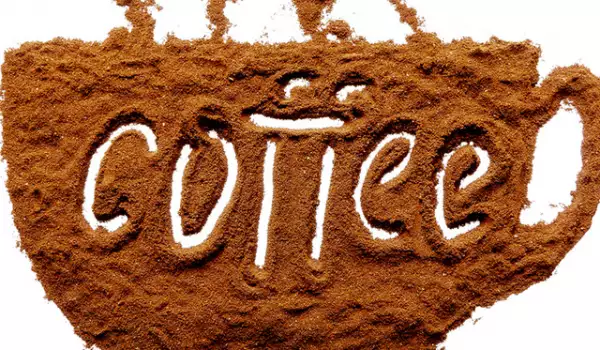Caffeine is a natural ingredient contained in coffee that acts as a stimulant on the central nervous system of humans. Caffeine is a xanthine alkaloid designated as contained in the leaves and fruit of different plants - coffee, tea, guarana, cocoa, cola and more. It is a natural pesticide and paralyzes and kills insects that feed on these plants. When it comes to the purely scientific term, caffeine is found in coffee beans, tea leaves and other plants. It’s caffeine in coffee, in tea – tianine, in Guarana – guaranine, in Yerba Mate - mateine.
The birthplace of the coffee tree is considered to be Ethiopia. In 12-15 century it comes to Arabia, where its use spreads across the globe. Caffeine is found in more than 60 plants that thrive in Africa and South America. Legends say that the Arabs first started using it 1000 years ago as a drink made from the leaves of the coffee tree. From South Arabia, the use of beverages containing caffeine spread throughout the Islamic world, then in Europe.
There is caffeine powder. It is in the form of fine white odorless powder with a slightly bitter taste. Pure caffeine powder can be reconstituted in any liquid, even in normal doses, it does not affect the drink’s taste. Excessive amounts of caffeine powder make the drink bitter and not very pleasant to drink. Depending on the condition of the human body, caffeine powder in larger quantities may have a better effect than drinking large amounts of coffee. Both extremes are not desirable.
Uses of caffeine

Sources of caffeine are coffee, tea, cocoa, energy drinks, caffeinated candy stimulating supplements, some chocolates and sweets, as well as in most analgesics and stimulants.
The most common use of coffee and other substances containing caffeine effect is gaining energy, due to physical fatigue, it increases concentration and eliminates sleepiness. Caffeine is one of the few stimulants that have virtually no negative side effects if you do not overdo it. It is freely available as an ingredient in many products worldwide. It’s water solubility is not high, but it increases with temperatures raises.
Effects of caffeine
After ingestion of drinks containing caffeine or other products with caffeine, it takes about 40-60 minutes for the stomach to absorb the caffeine, which is then distributed throughout the body. Therefore, the effect of caffeine is not instantaneous, but takes some time until it reaches the bloodstream and spreads throughout the body. After joining the bloodstream, it continues to operate in the range of 4 to 8 hours. Depending on its quantity and weight, age and general health of the person, the time may vary widely.
After the effect passes, the user feels super tired and sleepy. The temporary "benefits" disappear and you feel more tired and need more sleep, especially if under the influence of caffeine, severe mental or physical activity was carried out. Caffeine is not a substitute for sleep, experts warn.
As with most other stimulants, regardless of their type and purpose, the human body slowly begins to adapt to caffeine and thus reduces its effect. This leads to the need to increase the number of coffees and other use of sources of caffeine that have the same positive effect.
The time required for the body to adapt to caffeine is quite short, only a couple of weeks consumption of 3-4 cups (300-400 mg caffeine), and its effects will be greatly reduced. It is important to take regular breaks from ingesting caffeine.

Daily dose of caffeine
According to the Food Standards Agency in the UK, the dose of 300 mg. caffeine per day is quite safe. Other posts vary recommendations for safe dose - between 180 to 450 mg. caffeine per day. It is not recommended that you consume more than half the safe daily dose within 6-8 hours.
Benefits of Caffeine
Caffeine is a direct stimulant of the central nervous system. It has the ability to temporarily suppress sleepiness and increases the concentration of the brain. When it enters the bloodstream through the digestive system, it passes through the liver where it is metabolized to three primary metabolites: paraxantine (up to 84% of the amount swallowed), theobromine (12%) and theophylline (up 4%).
Thanks to paraxantine, caffeine stimulates lipolysis, the process of degradation of stored fat in the fat cells to fatty acids and glycerol, which enters the bloodstream. Theobromine is seen to increase the volume of blood vessels and the volume of urine, ie acts as a diuretic. Theophylline relaxes the smooth muscles of the bronchi in the lungs, making breathing easier.
Caffeine stimulates the production of epinephrine (adrenaline), offering increased levels of free energy by eliminating the effects of sleepiness and increasing alertness, but without replacing sleep. It improves athletic performance and suppresses fatigue. Caffeine improves breathing and relieves the respiratory tract (mainly in asthma, bronchitis, symptoms of colds and flu). Caffeine increases the effect of pain and increases the rate and extent of metabolism. It has a beneficial effect on weight loss by stimulating weight loss, burning fat and releasing water.
When stress increases, caffeine’s abilities are handy in a stressful situation and when dealing with negative stimuli. When sleep deprivation arrives, caffeine helps increases your concentration and retention of information in a stressful environment. Caffeine reduces serious risk of type 2 diabetes. Study done on 126, 000 men and women showed that those who consumed little or no caffeine, have a greater risk of developing diabetes type 2 than those who consumed more caffeinated beverages.
In addition, coffee is still the most popular beverage worldwide and drinking a cup of espresso, cappuccino, milk with instant coffee or other caffeinated drink is a pleasure for the senses and relax the body.
Dangers of caffeine

Frequent use of caffeine can lead to mental and sometimes even physical dependence. Caffeine is considered the most common legal drug (more so than alcohol) because it is freely available and uncontrolled for all age groups, including children, which makes it especially dangerous. Taking large doses of caffeine over long periods of time (more than 4 weeks) can lead to a condition known as caffeinism – between a light and growing form of caffeinated poisoning. This is accompanied by a desire to be influenced to take larger doses of caffeine through a variety of products, drinks or tablets.
Besides caffeinated poisoning, there is also caffeine-induced insomnia, which is not very well understood, but associated with caffeine intake conditions. The use of caffeine containing products can cause gastritis and exacerbate gastritis and ulcers.
Caffeine is contraindicated for nursing mothers and women in advanced pregnancy. It's very addictive and may cause displacement of the patient's diagnosis. Some experts say caffeine and energy drinks are dangerous in combination with alcohol. After the mass poisoning of a group of students in the U.S., who had consumed an energy drink high in caffeine and alcoholic drinks, the energizing drink is discontinued.
Caffeine is generally healthy, but overdoing intake levels it can be even fatal. For example, for an adult weighing 50 to 80 kg normal "safe" dose of caffeine a day is between 600 and 800 mg (in advanced stages of adaptation can and 1 d). Caffeine can be lethal in large doses of 6-10 d, if had all at once or within a short period of time.
It is important to note that the effect of caffeine on the body depends on the individual. There are documented cases of serious cardiovascular problems in people with only 2 grams of caffeine. The average dose of caffeine, which can lead to serious health problems and even death is between 150 and 200 mg per kilogram of body weight. In a 60kg person this equates to between 9 and 12g caffeine.

Caffeine Overdose
The use of caffeine in a form other than a few cups of coffee a day, like different caffeine pills, energy drinks and other products containing high doses of caffeine, including pure caffeine powder, must be minimal to moderate doses.
Taking 300 to 400 mg of caffeine within eight hours can lead to overdose and excessive stimulation of the central nervous system called caffeinated poisoning. It is accompanied by a rapid heartbeat, restlessness, insomnia, euphoria, pain and tingling in the stomach and intestines, diarrhea, rapid urination, excessive tightening of the muscles in otherwise normal movements, facial flushing and facial tics. Poisoning is accompanied by general physiological conditions, such as clumsiness, loss of thought, irrationality, aggression, depression, disorientation, lack of inhibitions, paranoia, occurrence of illusions and hallucinations, etc.
Consumption of simple coffee has rarely been dangerous, even in large quantities. A cup of strong coffee on average contains between 50 and 100 mg of caffeine, which makes a critical dose of caffeine with drinking achievable at 50 to 100 cups of coffee. This ceiling is reached with several 100-gram packages of instant coffee.
















